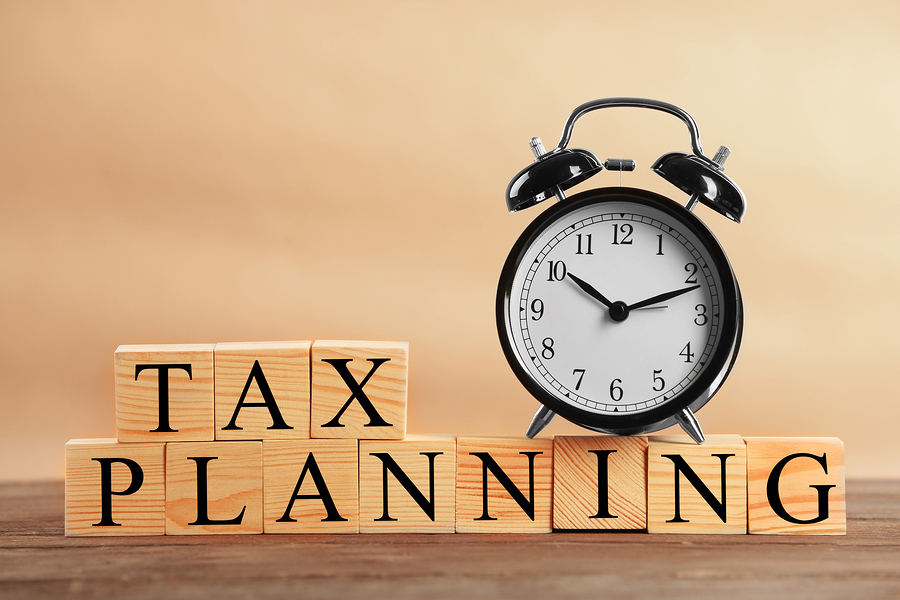How to plan your taxes

There are two sorts of taxpayers. There are ones who plan their taxes at the last minute and are in danger of committing certain expensive errors. Then, there are those who start their tax planning early and are better-situated to limit their tax outgo effectively. If you’re hoping to have a smooth tax saving plan and want to earn more in the process, you should start planning your taxes early. Here’s how you can do that.
Tax planning should come after financial planning
The most common mistake that people do is buying or investing in financial products that add no value to their life goals. For instance, a single earning member with no dependents buying an insurance policy to save taxes. Understand that financial planning is more important than saving taxes. First, you need to figure out your life goals and how much money you need to achieve those goals. Accordingly, choose suitable investment avenues and make tax planning a part of that process. The investments must first align with your long-term goals. Look at tax efficiency as an added benefit. Are yet to make your financial plan? Get in touch with consultants at wealthzi.com.
Start planning early
Investing in tax saving products at the last minute can reduce the returns that you could have earned on the same amount if you planned well on time. For instance, Rs. 50,000 invested in Public Provident Fund (PPF) in April will earn you more returns over the year when compared to investments made later in the financial year. Even money invested in an equity-linked savings scheme (ELSS) will earn higher returns, if invested in a staggered manner from the start of the year, rather than an amount invested later.
Calculate your tax obligation
Make an estimate of your tax liability for the financial year and use that to determine your monthly tax commitments. It will help you to determine how much your tax liability will be at the end of the year. If there is a change in your income in any month or quarter, you can easily increase or decrease your investments when you compare it to the tax plan.
Consider the allowances
There are several allowances that you might get from your employer. This could include food coupons, mobile reimbursements and internet bills. These lower your tax liability. When you plan your taxes consider these allowances. This will help you not put excess money in tax saving products, leaving you with funds for your household expenses.
Choose the right investments
When you start planning your taxes early, you have enough time to choose the right tax-saving instruments. Early tax planning provides you the time to carefully evaluate the returns offered by your shortlisted financial products and find out which ones are aligned with your financial goals and risk appetite. You should ideally select those investments that can help you achieve your life goals on time.
For instance, if you are near retirement, you may profit more by putting your resources into tax saving fixed income products that are safe, such as PFF, National Savings Certificate (NSC), among others. Then again, in the event that you are young and are looking for an exceptional yield, you should keep certain high-risk tax saving products such as ELSS in your investment portfolio.
It will be relevant to note here that there are different tax savings instruments that come with a lock-in time of 3 years, 5 years, and significantly more. You can pick one according to your life goals and the time needed to achieve them.
Invest in instalments
A typical mistake that people do is committing large sums of money as the financial year comes to a close. This isn’t very prudent. Truth be told, it’s smarter to contribute through instalments to benefit from rupee cost averaging while keeping liquidity worries under control.
As you draw closer to the end of the financial year, you can start increase or stop investing based on the limits under the Income Tax Act. For instance, under Section 80C the limit is Rs. 1.5 lakhs. There is no point investing more in 80C financial products if you have already exhausted the limit. Investing in instalments will help you assess your tax exemptions every month.
April is a good month for planning taxes in light of the fact that most organizations provide salary hikes at that time. It is not a bad idea to invest your bonus in tax-saving products at the start of the year so that you don’t have to worry about tax savings later.
Note the tax changes
There are many tax changes announced in the Union Budget ever year. For instance, earlier if you had capital gains from selling a house, you could use it to buy only one house for tax exemption. However, now you can buy two houses, if the capital gain amount does not exceed Rs. 2 crore. This can be done once in the lifetime of the taxpayer. Make a note of these tax changes that’s relevant to the financial year in which you file our tax returns so that you can save taxes in that year.

